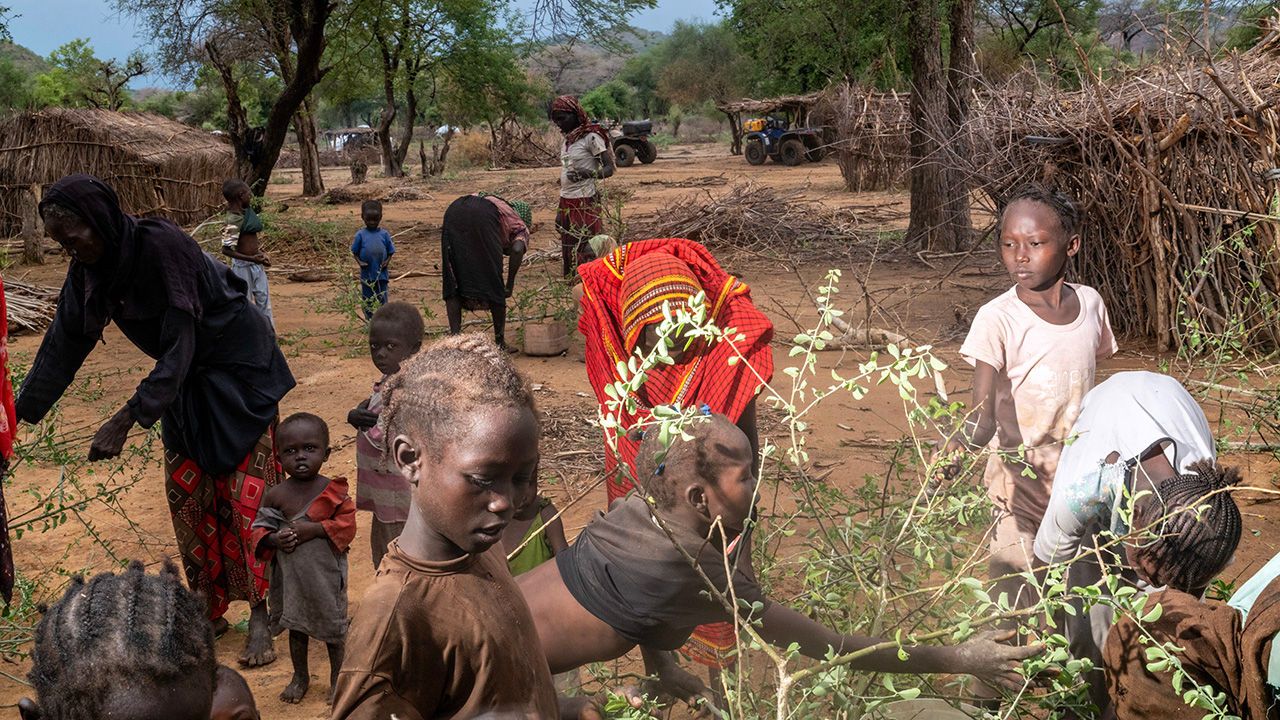- by Goma
- 01 30, 2025
-

-
-
Loading

Loading


TO GET TOUNSAFSPLM-NSAFRSFRSFSAFSAFUNSAFUNRSFSPLM-NSAF’RSFRSFNGOSAF’RSFSAF Caen refugee camp in the Nuba mountains in , travel first to Juba, the capital of neighbouring South Sudan. Then catch a plane to fly 900km north. From there it is a day’s drive to Kauda, the de facto capital of a self-governing mountain statelet in South Kordofan state in southern Sudan. Once registered with the rebel group that runs it, drive four hours to Caen, passing through mud-brick villages along rocky crags, with no market or petrol station in sight.Largely cut off from the outside world since a group of Nuba rebels launched the latest phase of their struggle against Sudan’s Arab-dominated Islamist government in 2011, the mountains have become something of a sanctuary from the country’s bloody civil war that began in 2023. As the war increasingly threatens to split Sudan into rival mini-states, it not only offers an insight into the humanitarian catastrophe unfolding in the country, but also a glimpse of its possible future.A region roughly the size of Slovakia, the Nuba mountains have been under siege by the Sudanese Armed Forces (), the national army, for the best part of two decades (see map). Run by a rebel group known as the Sudan People’s Liberation Movement–North () the region has no mobile-phone network, no paved roads and no electricity infrastructure. But as it is in effect being governed separately from the rest of Sudan, it is one of the few parts of the country largely untouched by fighting. Roughly 1m of the 11m people displaced by the war have fled there, ending up in camps like Caen.Unlike countless other rebel groups and tribal militias that have entered the fray, Nuba’s rebels have not picked a side in the conflict that pits the against the Rapid Support Forces (), a paramilitary group led by Muhammad Hamdan Dagalo (known as Hemedti) from the western region of Darfur, whose campaign of ethnic cleansing there was categorised as genocide by America on January 7th. “There is no difference between them,” says Nasardin, a teacher in Kauda. “We categorise both the and the as enemies.”Though the region is under pressure from both groups, fighting remains limited to periodic skirmishes. But the influx of refugees, combined with bad harvests, locust swarms and the ’s blockade of humanitarian supplies, has spelled disaster. In Caen camp, nearly 4,000 refugees from other parts of Sudan were living in wooden shacks without even plastic sheets for roofs when your correspondent visited in December. There was neither food nor medicine. Refugees said they were eating leaves and roots to survive.The and other groups quietly supply the Nuba mountains out of South Sudan, taking care not to anger the . But small numbers of aid workers bring only a fraction of what is needed. “I don’t understand why more don’t come,” complains Dawud Eshaya al-Full, the deputy governor. Towards the end of 2024 the declared famine in the western Nuba mountains, the first place outside North Darfur to be officially given the label.The situation in the region may be a harbinger of the future for the rest of Sudan. Since mid-2024 territory from the deserts of Darfur in the west to the farmlands of Sennar in the south-east has been occupied by the . As in 2011, when the resumed its campaign against the army in Nuba, the s response has been to combine air strikes with a punishing siege. Aid to -held areas is tightly restricted and payments for civil servants have been halted. Mobile-banking, internet and other services have been shut off.As a result, the partition of Africa’s third-largest country is becoming entrenched. There are now “at least four de facto areas of administration” in Sudan, says Jonas Horner of the European Council on Foreign Relations. They include the Nuba mountains as well as another rebel-run enclave in central Darfur.The has spent the past few months setting up its own bureaucracy, complete with civilian governors and a system for registering and taxing international s. In response to the s attempts to choke the supply of money into areas it occupies, the also plans to print its own currency. It may soon announce a government to rival the internationally recognised one led by Abdel Fattah al-Burhan, the general who leads the . “Sudan’s break-up is on the horizon,” says Mr Horner.It may be impossible to reassemble the pieces. Decades of war with the north led South Sudan to secede in 2011. In Nuba, many struggle to imagine living alongside their fellow Sudanese again. “At the end of the day, an Arab is an Arab,” says the teacher in Kauda. Nuba’s rebel leaders insist they are fighting for a united Sudan where all citizens—Muslim or Christian, Arab or African—are equal. But the longer the war drags on, the harder that will be.